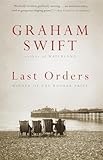The Bookseller of Kabul by Asne Seierstad won the Ethnic Multicultural Media Academy (EMMA) Award for Best Book in 2004.
Norwegian journalist, Asne Seierstad, spent 4 months living with the Khan family in Kabul, Afghanistan. The father of the family, Sultan Khan, spent his life trying to protect the culture of his country by buying and selling books. For this behavior, he was arrested, interrogated, and imprisoned. He hid his books in attics all over Kabul, but the ones that were found were often burned in the street by soldiers who were unable to read what they destroyed.
The social and political structure of Afghanistan has been chaotic for decades. The country has been occupied by Russia for 10 years, ruled by The Taliban, dictated to by Warlords and tribal chieftans, invaded by the American coalition after 9/11, and, for a time, dominated by the Northern Alliance. Through all this, the Afghani people have been subjected to rigid religious mandates which come and go with whomever is the ruling power of the day. Seierstad chronicles all of this in
The Bookseller Of Kabul simply by following the business and personal live of Sultan Khan and his family. The result is a fascinating picture of what life in Afghanistan has been like for those who have to try to survive there.
What I found most interesting about this book was Sultan Khan himself. It is an admirable, even heroic, position to risk one's life for the preservation of the printed word. The thing about Sultan Khan, however, is that he's not a very likable individual. We generally expect our heroes to represent the best in people, yet with Khan he's simply not a very appealing man. He rules his family as any other patriarch in Afghanistan would, however, his methods and values are generally not in the best interests of his family. His wives exist to serve him; his children are expected to do whatever his wishes dictate for them. He is consumed by the business of his books while he neglects the education of his own family. It is hard to reconcile the idea of hero with a man who shows no consideration for his children, his wives, or his siblings.
It was also interesting to read about the lives of Afghani women. When women were permitted to work outside the home, their lives were far more livable than they were when forced to remain inside their homes all day every day. If there is going to be education in Afghani society, it will be the women of the culture who provide it. The majority of school teachers are women, so when they may work, children can go to school. When they are not allowed to work, schools close since there are not enough male teachers to keep the schools functioning. Without jobs outside the home to provide some variety in their lives, women are relegated to staying inside and doing traditional womanly chores. There is no intellectual stimulation, and drudgery becomes the rule of the household. When given the choice between women working vs staying at home only to serve them, most men choose the latter.
In the four months Asne Seierstad lived with the Khan family, she took full advantage of the opportunity she was given to record the trials and tribulations of Afghani life. Her descriptions of a woman's life in Kabul was absorbing and ultimately, very sad. I needed to remind myself than Sultan Khan did serve a valuable purpose with his work to keep books from being obliterated in his country. However, the thought is never very far away that while Khan may say his motives are honorable, he's really in it all for the money.
5*/5*



 )
)




